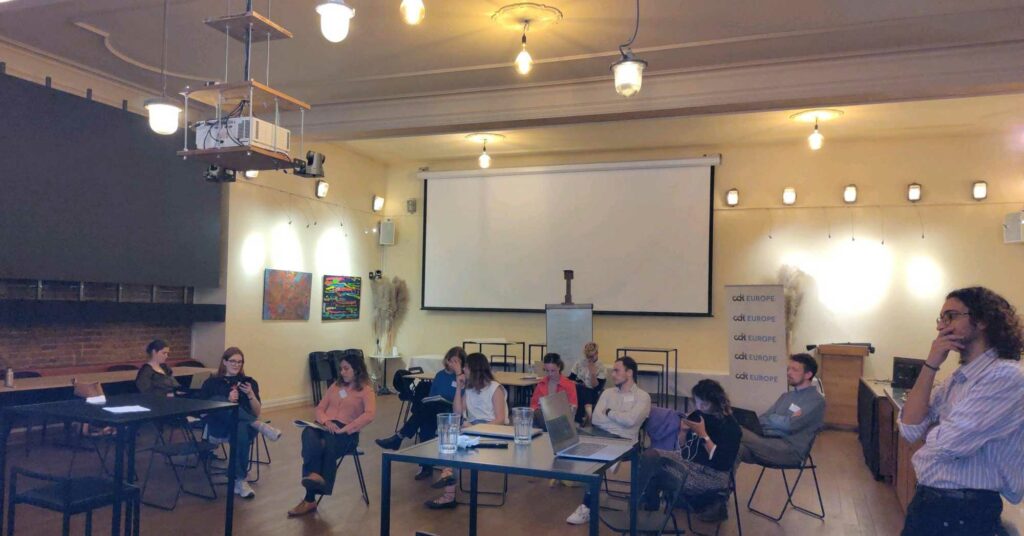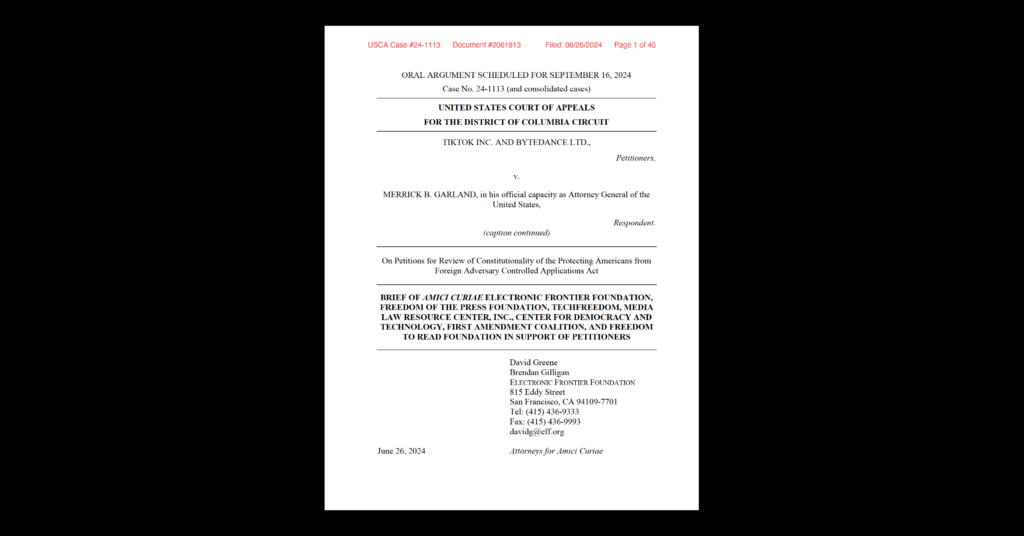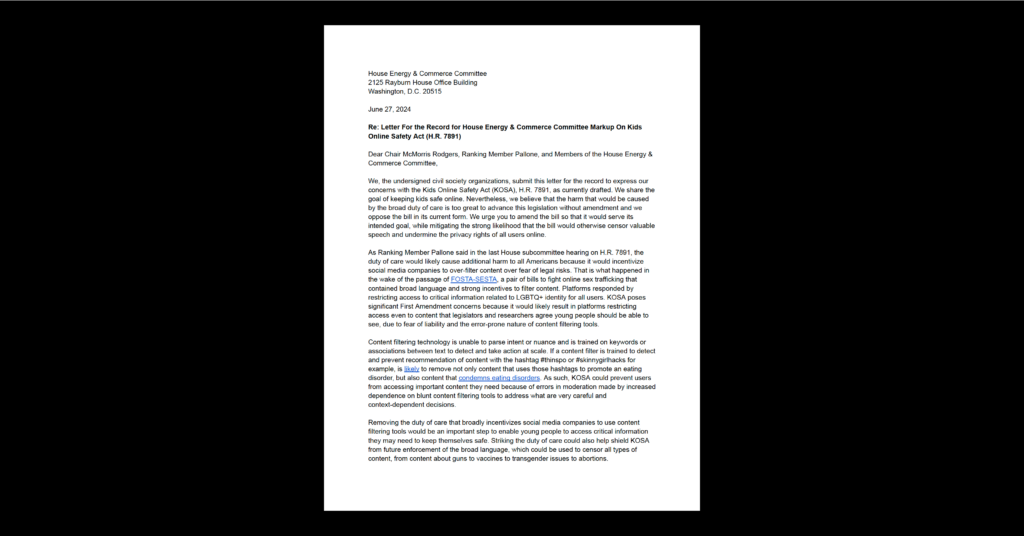AI Policy & Governance, Free Expression
CDT-Hosted Symposium Tackles Free Speech in the AI Age
Also authored by CDT Intern Hannah Barrios
On June 24th, government officials, civil society, and academics convened at the “Artificial Intelligence & The First Amendment: Protecting Free Speech in the AI Era” symposium hosted by CDT and The Future of Free Speech. Experts discussed the importance of free expression considerations when it comes to the regulatory debates around AI.
Panel 1
The first panel, moderated by CDT’s Samir Jain, included congressional staff members from across the aisle. Staff were asked about balancing constitutional rights, whether Section 230 would apply to AI companies, and how legislation is developing around this new technology. The panelists (including Halie Craig, John Beezer, and Jacqui Kappler) had a productive conversation about a number of issues related to the regulation of AI. The panelists discussed the importance of user autonomy and proposed solutions that would allow individuals’ greater control over what they see on their feeds – especially with the introduction of AI into content curation and moderation discussions.
They also discussed how lawmakers are tackling the issue of Non-Consensual Intimate Imagery (NCII), a problem that has only grown since the advent of technologies making such imagery much easier to produce. CDT recently announced a multistakeholder working group that will discuss current interventions, identify best practices and potential new actions, and increase coordination across industries, civil society, and academia to address NCII,in light of the recent call to action issued by the White House for stakeholders to gather to take action to address this issue in addition to other conversations about legal policy changes.
Panel 2
The second panel, moderated by CDT’s Becca Branum, honed in on the First Amendment considerations emerging as a result of the widespread use of AI. The panel put academic experts Jeff Kosseff and Eugune Volokh in conversation with ACLU’s Ben Wizner and Keith Chu, Chief Communications Adviser and Deputy Policy Director for Senator Ron Wyden. Although the original authors of Section 230 did not have AI in mind when they wrote the statute in 1996, it continues to shape the regulatory landscape. Volokh described it as the “sword and shield” giving companies the power to moderate content without the fear of being sued – an interpretation that aligns with CDT’s own views on Section 230.
Panel 3
When asked how companies are balancing free expression and safety, Future of Free Speech CEO Jacob Mchangama described the lines between two as “fuzzy” and likely to have a big impact on information access and traditional speech. Companies continue to have an outsized role in influencing how AI will reshape the modern marketplace of ideas. Content moderation continues to dominate public discourse, especially in light of the recent Murthy v. Missouri decision. Mchangama, along with the other panelists David Wilner and Jules White, remained optimistic about the future of AI. If careful consideration is given to both the regulatory decisions and the technicalities of how AI functions, its impacts will be a net positive, the panelists conclude.
Panel 4
Civil society has a critical role to play in AI regulation – especially in bringing the perspective of everyday citizens to the table, CDT’s Kate Ruane said in the final panel. Ruane was joined by Knight First Amendment Institute’s Nadine Farid Johnson and Stand Together’s Ashkhen Kazaryan to discuss how civil society is working together to bring about change. Civil society, involved since the advent of the internet and social media, has learned important lessons since the start of the digital revolution. Farid Johnson distilled civil society’s role into 3 pillars: accountability, expertise, influence. It has a huge part in developing norms and ensuring accountability in both the public and private sector.
The ability to share ideas has always been essential to innovation. Focusing on how new AI regulation impacts speech is just one such way in which civil society plays a vital role in protecting human rights on the internet.


